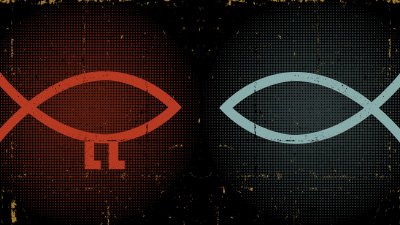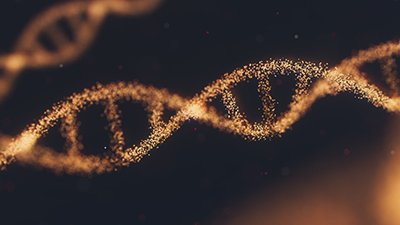
Yeast Hatches New Evolutionary Model
Extrapolation from yeast hatches new evolutionary model.
News Source
- GreenFluorescentBlog: “New model for gene birth”
Evolutionists believe organisms acquire and accumulate new genetic information that provides blueprints for new kinds of organisms. However, the source of such new genes has always remained a little fuzzy, to say the least.
Since gene “duplicates” and various “near-repeats” of genetic sequences do appear in genomes, evolutionists believe some new genes come from reorganization of existing genetic sequences. However, according to a study called “Proto-genes and de novo gene birth,” published in Nature, “De novo gene birth [from non-coding “junk” DNA] remains poorly understood, mainly because translation of sequences devoid of genes . . . is expected to produce insignificant polypeptides rather than proteins with specific biological functions.”1 In other words, there has been no proof that there are any biologically useful molecules encoded in genetic “junk.” (Read how “junk” DNA can be seen as God’s tools at ‘Junk’ DNA: Evolutionary Discards or God’s Tools?)
A Harvard-led team of evolutionary biologists, after comparing the genes in various strains of budding yeast to each other and to those in similar yeast species, has developed a new evolutionary model. Noting that some “junk” DNA gets translated into RNA, the team writes, “These translation events seem to provide adaptive potential.”2 They conclude therefore that their work “illustrates that evolution exploits seemingly dispensable sequences to generate adaptive functional innovation.”3
Their work “illustrates that evolution exploits seemingly dispensable sequences to generate adaptive functional innovation.”
In some strains of yeast, genes appeared to be replaced by “pseudo-genes” (non-functioning mutant sections), so the team believes further mutation could render a gene unrecognizable. They call the unrecognizable version of the gene a “proto-gene” and note that it would become part of the “junk” DNA. Then they propose the process could proceed in the other direction and birth a new gene. The new gene would be retained over generations if it encodes for something useful.
Reporting on “Proto-gene and de novo gene birth” as published in Nature, a molecular biology blogger writes:
If their model is further developed and strengthened, this could be the “missing link” in molecular evolution. If laboratory experiments will show that such proto-genes can actually become bona fide genes, it will be a blow to a lot of anti-evolutionists [sic] claims that proteins such as we see today could not have been created by evolution, because they are too complex and too efficient, that there are no known “proto-genes” they could have evolved from (emphasis his).
We must note, however, that the researchers did not demonstrate any non-coding genetic material could become bona fide genes. Thus, to call the non-coding sequences “proto-genes” is presumptive and misleading. Furthermore, even if the non-coding sections of DNA do provide a reservoir of genetic information, that information could only provide the raw material for variation within a kind of organism and still does not provide a leg up the evolutionary tree.
Thus, at best, the Harvard team has unearthed a mechanism by which the organisms created by God can vary. But they have not discovered the “missing link” in molecular evolution or shown how upward evolution (changing one kind into a different kind, say an ape to a human or a dog to a horse or a robin to an eagle or a bean plant to an oak tree or a dinosaur to a bird) could happen simply by time and chance and the laws of nature working on matter.
Further Reading
For More Information: Get Answers
Remember, if you see a news story that might merit some attention, let us know about it! (Note: if the story originates from the Associated Press, FOX News, MSNBC, the New York Times, or another major national media outlet, we will most likely have already heard about it.) And thanks to all of our readers who have submitted great news tips to us. If you didn’t catch all the latest News to Know, why not take a look to see what you’ve missed?
(Please note that links will take you directly to the source. Answers in Genesis is not responsible for content on the websites to which we refer. For more information, please see our Privacy Policy.)
Footnotes
- A. Carvunis et al. “Proto-genes and de novo gene birth” Nature 487 (19 July 2012): 370–373.
- Ibid.
- Ibid.
Recommended Resources

Answers in Genesis is an apologetics ministry, dedicated to helping Christians defend their faith and proclaim the good news of Jesus Christ.
- Customer Service 800.778.3390
- Available Monday–Friday | 9 AM–5 PM ET
- © 2026 Answers in Genesis






